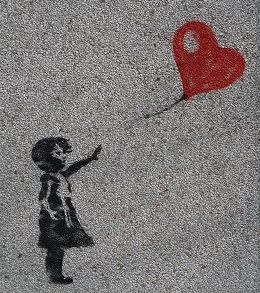When personal loss opens the door to an eating disorder
When personal loss opens the door to an eating disorder

A recovery story
by Diana Beaudet
The tipping point for the onset or relapse of an eating disorder is not always evident. Sometimes, the experience of personal loss can be the trigger. Whether it is the loss of family or friend, the loss of or disconnection from self at pivotal stages in life (adolescence, marriage, parenthood, divorce) or the loss of physical safety or trust in others or environment – all can have a profound impact on your perception of self and of your evolving life.
Eating disorders numb the pain of loss
For people who are genetically predisposed, restriction, binging and purging offer a false sense of refuge from dealing with loss and trauma. Starvation may bring feelings of calmness and purity, and even reach the stages of euphoria; while binging and purging can feel like a chaotic distraction. In either case, you become all-consumed by the eating disorder – its voice occupying your mind and leaving no space for you to think about or address the complicated and deep emotions surrounding the loss that initially triggered the disorder.
When the relationship with my siblings abruptly ended, my restrictive eating disorder flourished. Starving myself numbed the hurt and shame of their rejection, and my sadness at losing the family I had loved. I felt driven to be as physically small and insignificant as I emotionally felt. When I couldn’t sort out or solve what happened with my family, I got lost in my anorexia.
Turning stories of loss into stories of healing
One of the most helpful tools in my recovery kit – especially when I’m feeling down and don’t have access to therapy – is reading other’s stories of loss and recovery. These stories are a powerful reinforcement that I am not alone in my loss, or in my eating disorder experience and recovery.
When I eventually realized and acknowledged that I might have an eating disorder, but before I began recovery, I did not know that others might have a similar experience of loss. As a result, I was secretive of my situation and remained very isolated (ED loves isolation). But then, as I began to open myself to recovery and to others, I learned that I was far from alone. This realization allowed me to feel comfortable connecting with others, and has brought peace and healing to my life.
Drafting my own stories
In addition to leaning on other’s stories as a source of perspective, I’ve grown increasingly comfortable with sharing my own. Throughout my recovery, I’ve kept a diary by my side. Originally recommended as a way to track diet and exercise to be shared with my dietitian and note tasks and goals set with my therapist, my diary quickly evolved as a place to express the powerful emotions related to recovery that I was uncomfortable sharing with others. Writing allowed me to process and untangle all of the painful realizations that I was making in therapy – long ignored and silenced through restriction.
Over time, diary writing became the foundation for drafting my story to share publicly. Doing so has given me courage and opened me to others in a more meaningful way. This has become, for me, a critical step in my recovery. I recently went further in this process, by co-writing with my therapist and sharing my story of loss. This collaborative approach enabled reflection on how the loss of important relationships had affected my eating disorder – and how working through that loss in therapy led to a significant and tangible step forward in my eating disorder recovery.
Recovery is empowering at every age, for everyone
A close teen-aged family member has recently experienced her core friend group and her long-time “best” friend withdraw from her – an unfortunately normal experience for many girls as they navigate their teen years. In response to this loss, she began restricting, and former fears about foods and eating quickly returned as well. Fortunately, she asked for help. She has bravely tackled her eating disorder with a combination of cognitive behavior therapy (CBT), family based treatment (FBT), exposure therapy, and nutritional counseling – and with each passing week, she’s become a happy, confident and more resilient young woman. This has given her the strength to put the loss of her friends into a mature and forward-thinking perspective. Her recovery experience – directly tackling her greatest fears each day and succeeding – is teaching her that she is stronger than she ever imagined.
She is empowered.
She is my hero.
Let recovery empower you
Confronting your loss, pain and fears at every age, and allowing yourself to enter recovery will heal not only your body, but your mind and soul as well. It will be the best hard work that you will ever do, because it will allow you to move forward in your life. Recovery will allow you to find peace and freedom – and, it will empower you.
We welcome you to share your own stories of loss and recovery with us. To do so, please contact us.





